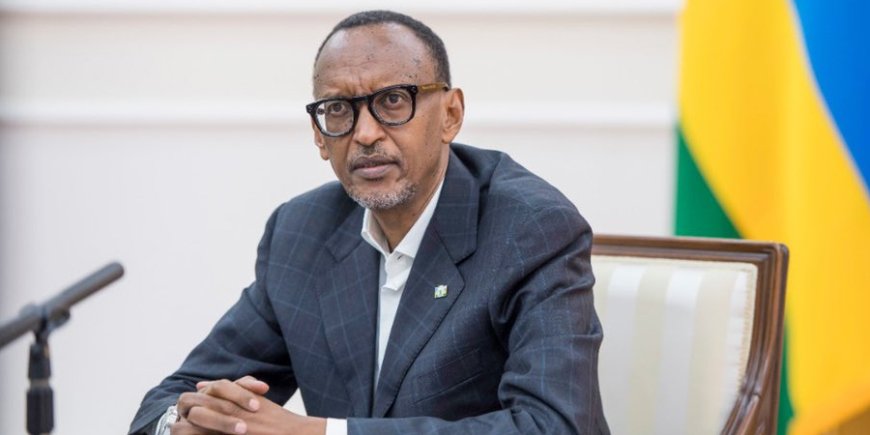Kagame Appoints Central Banker as Rwanda’s New Prime Minister: A Strategic Executive Reshuffle
Rwanda's President Kagame appoints central bank deputy governor Justin Nsengiyumva as prime minister, replacing Édouard Ngirente. This strategic move signals a shift toward technocratic governance and economic stewardship.

In a surprise executive shakeup, President Paul Kagame today replaced long-serving Prime Minister Édouard Ngirente with Justin Nsengiyumva, the deputy governor of Rwanda’s central bank. Nsengiyumva officially steps into the role of overseeing day-to-day national governance, marking a significant shift in Kigali’s political landscape ReutersReuters.
1. Who is Justin Nsengiyumva?
Justin Nsengiyumva, appointed by Reuters and confirmed via X (formerly Twitter), holds a PhD in economics from the University of Leicester. Before his central bank tenure this year, he served as permanent secretary in Rwanda’s Ministry of Education and worked as a senior economist within the UK’s Office of Rail and Road Africanews+2Reuters+2Reuters+2.
Notably, he was once convicted on corruption charges in 2008 while in the education ministry—an offense for which President Kagame granted a pardon in March 2023 alongside other cases Reuters.
2. A Leadership Passage Unexplained
Édouard Ngirente, who assumed the prime minister’s office in August 2017 following his appointment by Kagame Wikipedia+15Wikipedia+15Wikipedia+15, expressed gratitude for the opportunity and affirmed his continued support for national development. He did not comment on the reasons for his departure Capital FM+2Reuters+2Reuters+2.
Rwanda’s constitution grants the president authority to appoint the prime minister and requires the formation of a new cabinet within 15 days of any such change—a move that typically ushers in broader ministerial restructuring Africanews.
3. Significance of the Appointment
Kagame’s decision to elevate a central bank official to the prime minister’s post comes at a key economic juncture. With Nsengiyumva’s strong financial and economist background, analysts suggest Rwanda is signaling a renewed focus on economic prudence, fiscal governance, and institutional credibility.
This reshuffle coincides with Kagame’s broader eight-point agenda, reaffirmed during his overwhelming re-election in 2024 with 99.18% of the vote Wikipedia+15Reuters+15Reuters+15.
4. Economic Governance on the Front Bench
As deputy governor of the National Bank of Rwanda—a position he assumed earlier this year—Nsengiyumva brings central-bank proficiency to national administration Facebook+6Reuters+6Reuters+6.
His prior service in the education sector and inside UK policymaking circles provides a unique blend of domestic and international policy experience. Analysts expect that his appointment could drive new momentum in Rwanda’s macroeconomic planning and long-term development strategies.
5. Politics Behind the Quiet Announcement
State media reported the change in a brief X announcement from the government spokesperson’s office, with no public explanation or official rationale Capital FM+2Reuters+2Reuters+2.
This quiet transition is consistent with Kagame’s historical preference for controlled, centrally-driven executive decisions. The swift cabinet reformation—in line with constitutional timelines—signals continuity in governance, even as it raises questions about the balancing act between stability and responsiveness.
6. Expert Commentary
Professor Alice Uwimana, a political economy expert at Kigali University, commented: “Appointing an economist with international exposure positions Rwanda to fine-tune its economic agenda. It reflects Kagame’s belief in technocratic experience over populist appeal.”
International watchers also noted the choice conveys a message: Rwanda intends to amplify monetary oversight and fiscal consistency, particularly amid debt pressures and regional integration complexities.
7. Policy Impacts to Monitor
Under Nsengiyumva's operational watch, key policies may gain traction:
-
Monetary–fiscal synchronization: Enhanced coordination between the central bank and executive will be crucial for inflation control and public investment.
-
Economic diplomacy: Nsengiyumva’s UK-linked background could support Rwanda's efforts in attracting foreign investment via the African Continental Free Trade Area (AfCFTA).
-
Education: His prior tenure at the education ministry suggests possible reforms in human capital development, a cornerstone of Kagame’s Vision 2050 industrial roadmap.
-
Transparency measures: With a corruption conviction in his history, some anticipate a push for institutional accountability—though any initiative will be scrutinized domestically for credibility.
8. Regional and International Implications
Rwanda's political stability and reputation for efficient governance are pivotal in its positioning in East Africa and global forums like the UN and World Bank. The elevation of a central banker aligns with expectations that Rwanda will strengthen its financial architecture and continue its creditworthy trajectory.
Nsengiyumva’s ascent is also timely ahead of Rwanda’s chairmanship in the African Union in late 2026, where economic leadership will be a contested priority.
9. Kagame’s Executive Strategy
Kagame’s presidency has been marked by tight control over government structure and strong central oversight. Replacing Ngirente—who served through multiple development cycles—coincides with policy recalibrations and potentially fresh cabinet alignments.
Analysts see this as part of a broader succession strategy by Kagame, likely aimed at enriching institutional capacity while safeguarding political coherence within the ruling party.
10. What to Watch Next
-
Cabinet Reconstitution: The new cabinet lineup, due within 15 days, will be a key indicator of policy direction.
-
Monetary Policy Reviews: With Nsengiyumva’s central banking experience, upcoming interest rate decisions and inflation control efforts may reflect greater alignment between executive and monetary authorities.
-
Foreign Engagement: Expect an uptick in investor outreach strategies, particularly in finance and education sectors.
-
Anti-Corruption Signals: Any measurable strides towards legal reform or anti-corruption initiatives will reflect his personal history and technocratic approach to governance.
Conclusion
President Kagame’s selection of Justin Nsengiyumva as Rwanda’s new prime minister marks a calculated pivot towards economic management and institutional resilience. The appointment of a technocrat, blending central banking mastery with international and domestic service, underscores Rwanda’s intent to bolster economic governance as it drives Vision 2050.
While the reshuffle maintains political continuity, it also raises expectations for monetary efficiency, developmental pragmatism, and global engagement. As Rwanda sets the stage for renewed leadership, Nsengiyumva's tenure will likely define whether technocratic stewardship can match Kagame’s developmental ambitions.




















































